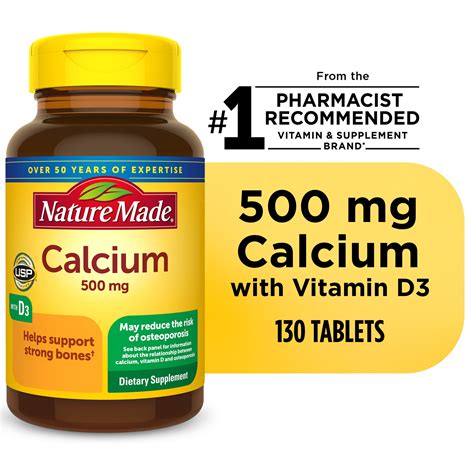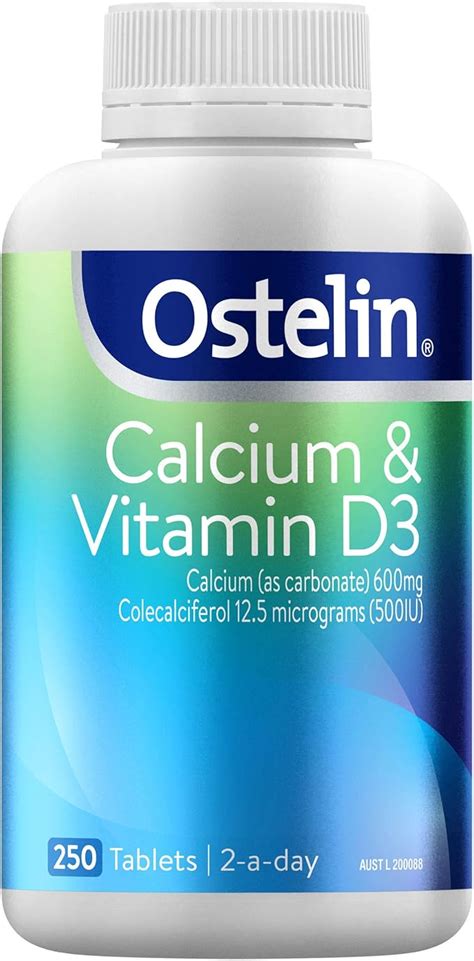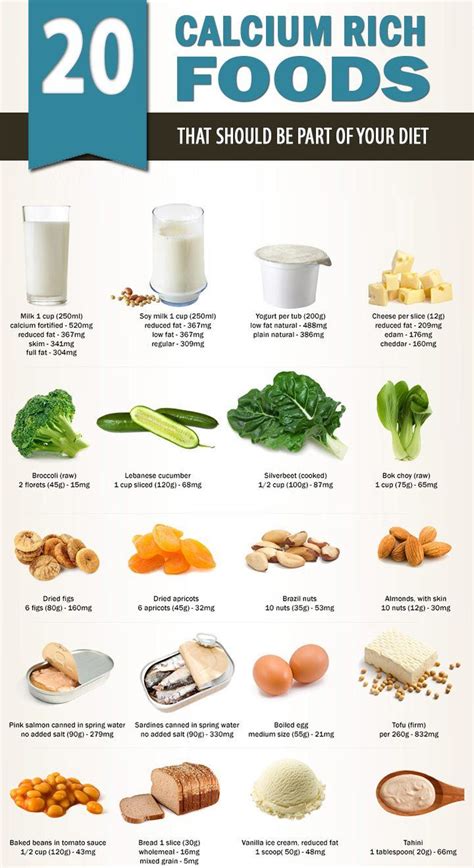Intro
Discover how Vitamin D enhances calcium absorption, promoting strong bones and teeth, through its role in calcium regulation, bone mineralization, and immune system support, revealing 5 key ways Vitamin D boosts calcium levels for optimal health.
Vitamin D and calcium are two essential nutrients that play a crucial role in maintaining strong bones and overall health. While calcium is the building block of bones, vitamin D is necessary for the body to absorb calcium effectively. Without sufficient vitamin D, the body cannot properly utilize calcium, leading to a range of health problems, including osteoporosis, rickets, and osteomalacia. In this article, we will delve into the importance of vitamin D in boosting calcium levels and explore the various ways in which it does so.
The relationship between vitamin D and calcium is complex and multifaceted. Vitamin D helps regulate calcium levels in the blood by promoting calcium absorption in the gut and reducing calcium excretion in the urine. This ensures that the body has a consistent supply of calcium to support bone health and other physiological functions. Moreover, vitamin D also helps to maintain adequate phosphate levels, which is essential for bone mineralization. The combination of vitamin D and calcium is vital for building and maintaining strong bones, and a deficiency in either nutrient can have severe consequences for overall health.
The importance of vitamin D in boosting calcium levels cannot be overstated. Research has shown that individuals with vitamin D deficiency are at a higher risk of developing osteoporosis and fractures, particularly in older adults. Furthermore, vitamin D deficiency has also been linked to a range of other health problems, including diabetes, hypertension, and certain types of cancer. Therefore, it is essential to understand the ways in which vitamin D boosts calcium levels and to take steps to ensure adequate intake of both nutrients.
Introduction to Vitamin D and Calcium

Vitamin D and calcium are two nutrients that work together to maintain strong bones and overall health. Vitamin D is a fat-soluble vitamin that is obtained through exposure to sunlight, diet, and supplements. Calcium, on the other hand, is a mineral that is found in a variety of foods, including dairy products, leafy greens, and fortified cereals. The combination of vitamin D and calcium is essential for building and maintaining strong bones, and a deficiency in either nutrient can have severe consequences for overall health.
Benefits of Vitamin D and Calcium
The benefits of vitamin D and calcium are numerous and well-documented. Some of the key benefits include: * Stronger bones: Vitamin D and calcium work together to build and maintain strong bones, reducing the risk of osteoporosis and fractures. * Improved muscle function: Vitamin D and calcium are essential for muscle function and movement, reducing the risk of muscle weakness and cramps. * Better immune function: Vitamin D has been shown to have immunomodulatory effects, reducing the risk of infections and autoimmune diseases. * Reduced risk of chronic diseases: Vitamin D and calcium have been shown to reduce the risk of chronic diseases, including diabetes, hypertension, and certain types of cancer.How Vitamin D Boosts Calcium Levels

Vitamin D boosts calcium levels in several ways. Some of the key mechanisms include:
- Promoting calcium absorption: Vitamin D helps to regulate calcium absorption in the gut, ensuring that the body has a consistent supply of calcium to support bone health and other physiological functions.
- Reducing calcium excretion: Vitamin D helps to reduce calcium excretion in the urine, ensuring that the body retains adequate calcium levels to support bone health.
- Maintaining adequate phosphate levels: Vitamin D helps to maintain adequate phosphate levels, which is essential for bone mineralization.
- Regulating parathyroid hormone: Vitamin D helps to regulate parathyroid hormone, which is essential for maintaining adequate calcium levels in the blood.
Steps to Boost Calcium Levels with Vitamin D
To boost calcium levels with vitamin D, follow these steps: 1. Maintain adequate vitamin D levels: Ensure that you have adequate vitamin D levels through exposure to sunlight, diet, and supplements. 2. Consume calcium-rich foods: Consume calcium-rich foods, including dairy products, leafy greens, and fortified cereals. 3. Take calcium supplements: Take calcium supplements if you are unable to get enough calcium through your diet. 4. Exercise regularly: Exercise regularly to maintain strong bones and overall health. 5. Get enough sleep: Get enough sleep to help regulate vitamin D and calcium levels.Vitamin D and Calcium-Rich Foods

Vitamin D and calcium-rich foods are essential for maintaining strong bones and overall health. Some of the best sources of vitamin D and calcium include:
- Fatty fish: Fatty fish, such as salmon and mackerel, are rich in vitamin D.
- Fortified dairy products: Fortified dairy products, such as milk and cheese, are rich in calcium and vitamin D.
- Leafy greens: Leafy greens, such as kale and broccoli, are rich in calcium.
- Fortified cereals: Fortified cereals are rich in calcium and vitamin D.
- Egg yolks: Egg yolks are rich in vitamin D.
Practical Tips for Increasing Vitamin D and Calcium Intake
Here are some practical tips for increasing vitamin D and calcium intake: * Start your day with a calcium-rich breakfast: Start your day with a calcium-rich breakfast, such as fortified cereal with milk or yogurt with fruit. * Take a vitamin D supplement: Take a vitamin D supplement if you are unable to get enough vitamin D through your diet. * Eat fatty fish: Eat fatty fish, such as salmon and mackerel, to increase your vitamin D intake. * Add leafy greens to your meals: Add leafy greens, such as kale and broccoli, to your meals to increase your calcium intake. * Snack on calcium-rich foods: Snack on calcium-rich foods, such as cheese and crackers or yogurt with fruit.Vitamin D and Calcium Deficiency

Vitamin D and calcium deficiency can have severe consequences for overall health. Some of the symptoms of vitamin D and calcium deficiency include:
- Weak bones: Vitamin D and calcium deficiency can lead to weak bones, increasing the risk of osteoporosis and fractures.
- Muscle weakness: Vitamin D and calcium deficiency can lead to muscle weakness, increasing the risk of falls and injuries.
- Fatigue: Vitamin D and calcium deficiency can lead to fatigue, reducing overall quality of life.
- Hair loss: Vitamin D and calcium deficiency can lead to hair loss, reducing self-esteem and confidence.
Risks of Vitamin D and Calcium Deficiency
The risks of vitamin D and calcium deficiency are numerous and well-documented. Some of the key risks include: * Osteoporosis: Vitamin D and calcium deficiency can increase the risk of osteoporosis, particularly in older adults. * Fractures: Vitamin D and calcium deficiency can increase the risk of fractures, particularly in older adults. * Diabetes: Vitamin D deficiency has been linked to an increased risk of diabetes. * Hypertension: Vitamin D deficiency has been linked to an increased risk of hypertension. * Certain types of cancer: Vitamin D deficiency has been linked to an increased risk of certain types of cancer, including colorectal and breast cancer.Conclusion and Final Thoughts

In conclusion, vitamin D and calcium are two essential nutrients that play a crucial role in maintaining strong bones and overall health. Vitamin D helps to regulate calcium levels in the blood, promoting calcium absorption and reducing calcium excretion. The combination of vitamin D and calcium is vital for building and maintaining strong bones, and a deficiency in either nutrient can have severe consequences for overall health. By following the steps outlined in this article, individuals can boost their calcium levels with vitamin D and reduce the risk of vitamin D and calcium deficiency.
We invite you to share your thoughts and experiences with vitamin D and calcium in the comments section below. Have you experienced any benefits or challenges with vitamin D and calcium supplementation? What are your favorite calcium-rich foods? Share your story and help others understand the importance of vitamin D and calcium for overall health and well-being.
What are the symptoms of vitamin D deficiency?
+The symptoms of vitamin D deficiency include weak bones, muscle weakness, fatigue, and hair loss. Vitamin D deficiency can also increase the risk of osteoporosis, fractures, diabetes, hypertension, and certain types of cancer.
How can I boost my calcium levels with vitamin D?
+You can boost your calcium levels with vitamin D by maintaining adequate vitamin D levels, consuming calcium-rich foods, taking calcium supplements, exercising regularly, and getting enough sleep.
What are the best sources of vitamin D and calcium?
+The best sources of vitamin D and calcium include fatty fish, fortified dairy products, leafy greens, fortified cereals, and egg yolks. You can also take vitamin D and calcium supplements if you are unable to get enough through your diet.
